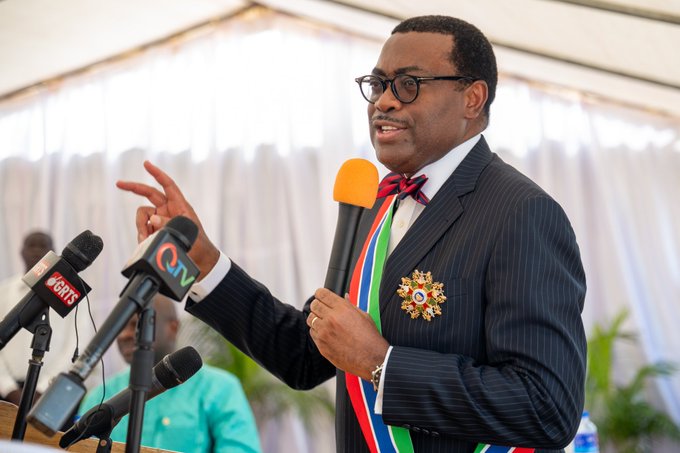Africa faces an escalating debt crisis, with African countries needing a staggering $74 billion to meet their debt obligations in 2024.
This warning was made by Professor Kevin Urama, Chief Economist at the African Development Bank (AfDB), during the launch of the Debt Management Forum for Africa (DeMFA) in Abuja on Monday.
Urama’s speech highlighted the scale of Africa’s debt burden. He noted that the $74 billion debt service requirement for 2024 represents a sharp increase from just $17 billion in 2010.
“Of this amount, $40 billion is owed to private creditors, making up 54% of the total debt service,” Urama explained.
The AfDB’s Chief Economist also cautioned that the real debt service figure could be even higher when hidden debts and contingent liabilities are considered.
According to Urama, 20 African countries are either in debt distress or at high risk of it, with refinancing risks expected to increase for nations with large bullet redemptions.
Urama’s warning paints a grim picture of Africa’s debt sustainability challenges, particularly for the continent’s most vulnerable nations.
He pointed out the stark contrast between developed countries and African nations when it comes to managing debt.
“While developed countries can sustain high levels of debt with low debt service burdens, developing countries, including those in Africa, are spending a large portion of their fiscal resources just to service their debts,” Urama said.
He also criticized the slow pace of debt relief and restructuring efforts. According to Urama, these measures are not addressing the root causes of Africa’s debt challenges, making debt sustainability an ongoing issue.
In addition to these concerns, Urama highlighted Africa’s persistent liquidity problems.
The AfDB has projected that African countries will need to refinance $10 billion in debt annually between 2025 and 2033.
He also pointed out the rising cost of refinancing, with African Eurobond yields surging to 15% in 2023, more than double the rate in 2019.
“These high yields are driven by both domestic and external factors,” Urama explained. “Unfair risk perceptions are also contributing to these high costs.”
The situation has led to Africa facing what Urama calls the “Africa Risk Premium” — an estimated $24 billion in excess interest paid annually due to perceptions of high sovereign risk.
“This deprives the region of critical resources for development,” he said.
At the same event, Dr. Anthony Simpasa, Director of the Macroeconomic Policy Department at the AfDB, attributed Africa’s rising debt levels to the growing frequency of climate-related shocks.
Simpasa explained that many African countries are borrowing heavily to fund climate adaptation and mitigation projects. These projects are increasingly becoming a major component of Africa’s climate financing needs.
Allison Holland, Assistant Director of the IMF’s Strategy, Policy, and Review Department, also weighed in on the debt crisis.
She emphasized the importance of addressing private-sector debt before involving public-sector creditors in any debt resolution efforts.
“The big challenge here is why we don’t move forward with the private sector first. Wouldn’t this be faster?” Holland asked.
She added that the IMF’s ability to intervene is often limited by the willingness of official creditors to engage.
“If the private sector is unable to restore debts, the IMF cannot move forward,” she explained. “Official creditors remain a critical part of the process.”
Urama concluded by urging African leaders to explore Africa-led solutions to address the continent’s debt crisis.
He stressed the need for a rethink of Africa’s borrowing models, calling for more focus on productive investments that will generate sustainable economic growth.
“Debt should work for Africa, not against it,” he said.
As Africa prepares for another year of debt repayments, the situation remains critical. With rising debt burdens, liquidity challenges, and high borrowing costs, many African nations face tough economic choices ahead.
The continent will need innovative solutions and cooperation between international creditors to address the systemic issues contributing to its growing debt crisis.
The outcome of the discussions at the Debt Management Forum for Africa (DeMFA) and the responses from global financial institutions will be crucial in shaping the future of Africa’s financial stability.

